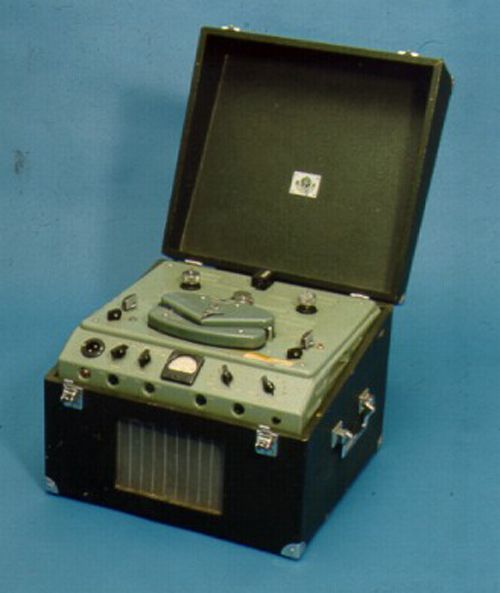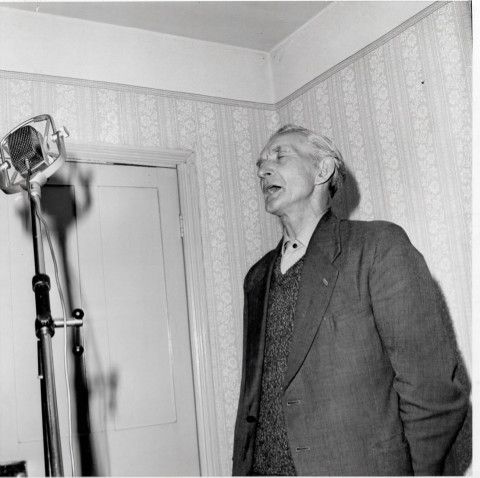Folk Songs
The Cuckold’s Song

Early Recording Machine.
I went down to my stable
As I had sone before,
There were seven and five
White horses there;
I went to my wife
And asked her
What were those white horses
[Doing] in my stable
She replied "You idiot!
Are you thick or are you blind?
Aren't they the twelve hunting hounds
My mother gave to me?”
I've travelled in America
And to much–fabled India
[But] I never ever saw [before]
Hounds wearing horseshoes!
I went down to my coach house
As I had done before
And there were seven and five carriages;
I went to my wife
And I asked her
What those carriages
Were doing in my coach house
She replied, "You idiot!
Are you thick or are you blind?
Aren't they the twelve dung carts
My mother gave to me?"
I've travelled in America
And to much–fabled India
[But] I never ever saw [before]
Dung carts with springs!
I went down to my cellar
As I had done before
There were seven and five
Casks of beer there;
I went to my wife,
And I asked her
What those beer casks
Were doing in my cellar.
She replied, "You idiot!
Are you thick or are you blind?
Aren't they the twelve butter pots
My mother gave to me ?"
I've travelled in America
And to much–fabled India
[But] I never ever saw [before]
A vice under a butter pot!
Listen
The Cuckold's Song
SFNHM Tape 829. Collected 11.9.64 from William Henry Ellis (lorry driver, b. 1897), Mynytho, near Pwllheli, Caernarvonshire.
Notes
The only known Welsh–language version of 'Our Goodman' (No. 274 in Francis James Child's famous collection of English and Scottish ballads*, published 1882–98). The song bears several additional names in English: 'The Cuckold's Song', 'Five (Seven) Nights Drunk', 'The Old Farmer and His Young Wife', etc. It is said to have originated among the mediaeval troubadours and its jocular tale of cuckoldry eventually became widespread throughout both Europe and English–speaking countries generally. In the Welsh example the objects of contention, allegedly gifts from the wife's mother, are white horses (hound dogs), coach carriages (dung carts) and beer casks (butter pots). A fourth stanza was mentioned by the singer but not remembered – in complete examples recorded outside Wales the cuckold's final discovery is a stranger in his bed. Cf. the tune given above with the French 'Ah vous dirai je', to which the words of 'Baa, baa, black sheep' are commonly sung, and also with 'Hafod yr Aeres' in Nicholas Bennett's collection of airs, Alawon Fy Ngwlad (The Lays of My Land, 1896). For general comparative material (texts and tunes), see especially The Traditional Tunes of the Child Ballads, ed. Bertrand Ham's Bronson. iv (1972). 95–129. *lt seems that but a few 'Child ballad' texts have versions in Welsh. In addition to 'Our Goodman', examples that do have Welsh–language counterparts are 'Lord Randal' (Child No. 12), 'Young Beichan' (53), and the familiar riddle song – in one form 'I will give my love an apple without e'er a core ...' – which also appears as part of 'Captain Wedderburn's Courtship' (46). Again found in a Welsh version is the ballad of William Grismond, mentioned by Child in discussing 'Brown Robyn's Confession' (57). As far as is known, 'Lord Randal' and 'Our Goodman' are the only ones of the above of which sung examples in Welsh have been noted down from oral tradition – the remainder appear, without music, in manuscript or printed sources.
Downloads
Back to Song List